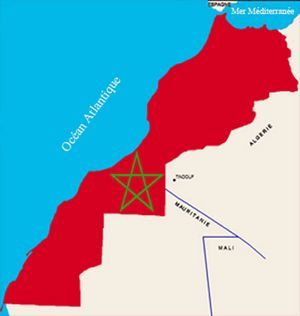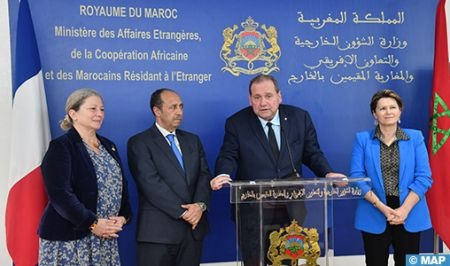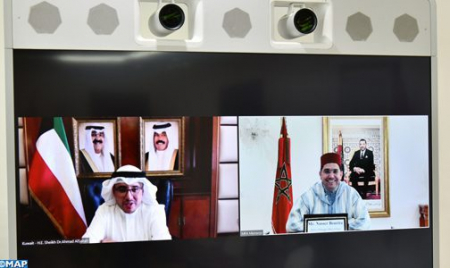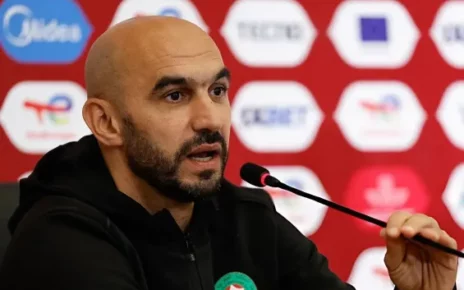 Several countries, organizations, and national and foreign observers and experts have welcomed the successful unfolding of the September 8 triple elections held in Morocco, noting the integrity and transparency that marked the polls.
Several countries, organizations, and national and foreign observers and experts have welcomed the successful unfolding of the September 8 triple elections held in Morocco, noting the integrity and transparency that marked the polls.
The UK government looks forward to working with the new Moroccan government to be set up following the parliamentary and local elections held Sept.08.
The British embassy in Rabat said in a tweet that “the UK Government has been proud to support Morocco’s democratic development over the past decade”.
“Our Embassy was pleased to take part in observing the elections. We look forward to working with the new government to deepen the historic ties between our Kingdoms”, underlined the UK diplomatic mission.
Portugal also congratulated Morocco on the smooth conduct of legislative, municipal and regional elections, which were marked, it said, by “the largest number of voters ever recorded”.
“We wish all the best to the elected representatives of the Moroccan people,” said the Portuguese Foreign Ministry on its official accounts on social networks.
The US embassy in Rabat was among the first to congratulate Morocco for holding successful general elections.
“Our shared commitment to democratic processes strengthens our 200-year partnership,” said the American embassy in its twitter account.
Belgian Minister of State and Federal Deputy André Flahaut has also underlined the success of the triple election held in Morocco and the high voter turnout, which show the Kingdom’s great democratic maturity.
This election, which took place under good conditions, “gives a clear signal of Morocco’s great democratic maturity,” and of a responsible sensitivity and citizenship which was expressed through the results of these elections,” the Belgian official said, adding that the ballot is a “sign of good omen for the image of Morocco in Africa as well as in Europe…and will further strengthen the Kingdom’s relations with its partners, in particular Belgium.”
The Parliamentary Assembly of the Council of Europe (PACE) which sent observers to Morocco deemed as “a success” the legislative elections, saying they were marked by “integrity” and “transparency” across the entire national territory.
Mandated to observe the elections, the PACE delegation, led by Italian MP Alberto Ribolla, congratulated the Moroccan people for these “peaceful” elections under the leadership of King Mohammed VI, and commended the “professionalism” of the authorities that organized the polls.
The Arab League’s mission, dispatched to observe Morocco’s elections, alongside 500 national and international observers from different organizations, said voters were allowed to freely fulfill their electoral duty and the vote took place in accordance with the legal framework of the electoral process and international standards.
The Community of Sahel-Saharan States (CEN-SAD) also hailed the “exemplary” holding of the September 8 elections.
“CEN-SAD joins international observers in welcoming the exemplary holding of the electoral process,” the regional organization said in a statement, commending “the patriotic commitment and political maturity of Moroccan political actors and citizens in this national democratic practice.”
For his part, the president of the National Audiovisual Regulatory Council of Senegal (CNRA), Babacar Diagne, welcomed “the transparency and the very good organization” of these elections.
“We have not observed any incident likely to undermine the integrity of the electoral operation, we are very satisfied with the transparency of these elections,” said Diagne.
Morocco has taken up the great challenge of organizing three elections on the same day despite the exceptional circumstances linked to the COVID-19 pandemic, noted the director of Gender Concerns International, Sabra Bano, who thanked the authorities for facilitating the mission of the international observers.
“We have observed with satisfaction the strengthening of the political representativeness of women,” noted Ms. Sabra Bano, deeming that all guarantees have been met for the organization of “free and transparent” elections.
Morocco organized, for the first time in the democratic life of its institutions, three elections in a single day (legislative, municipal and regional) with a voter turnout 50.35% at the national level.
The turnout was, as usual, high in the Southern Provinces of the Kingdom where it reached 66.94% in the region of Laayoune-Sakia El Hamra, 63,76% in the region of Guelmim-Oued Noun and 58.30% in the region of Dakhla-Oued Eddahab.
Morocco’s liberal parties made significant gains across the country in these elections, while the moderate Islamist PJD party suffered a humiliating defeat.
The National Rally of Independents (RNI) gained 102 of the 395-seat parliament, the Authenticity and Modernity Party (PAM) won 87, while the Istiqlal Party (oldest political formation) got 81 seats. The socialist USFP won 34, MP grabbed 28 seats, the PPS 22 seats, and the UC 18.
The PJD, which headed the government coalition for a decade, got only 13 seats against 125 seats in the outgoing Parliament.


